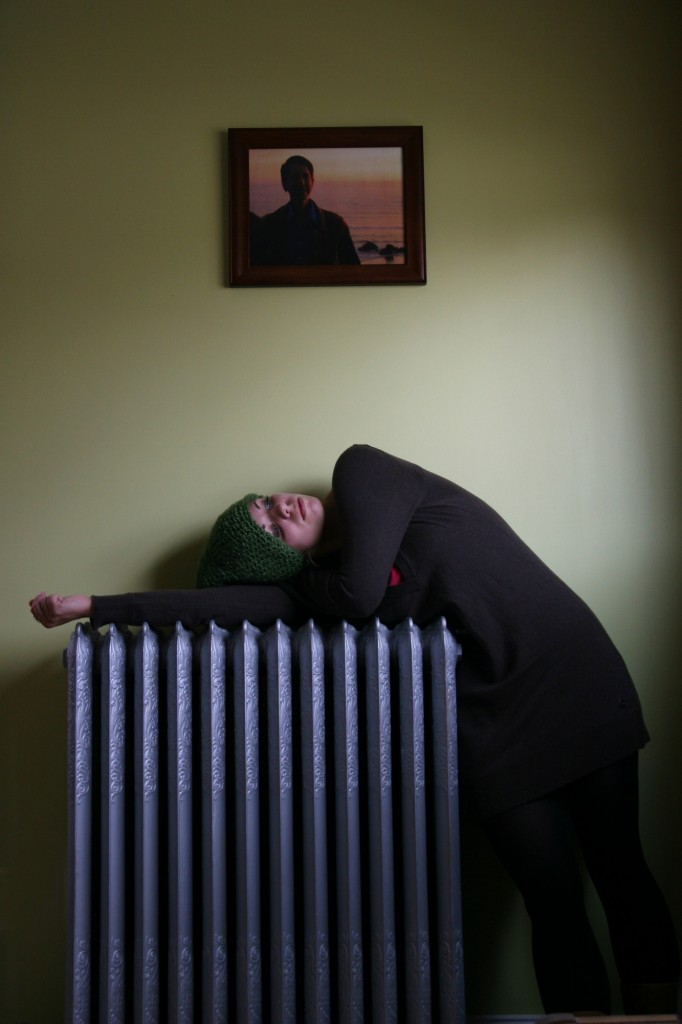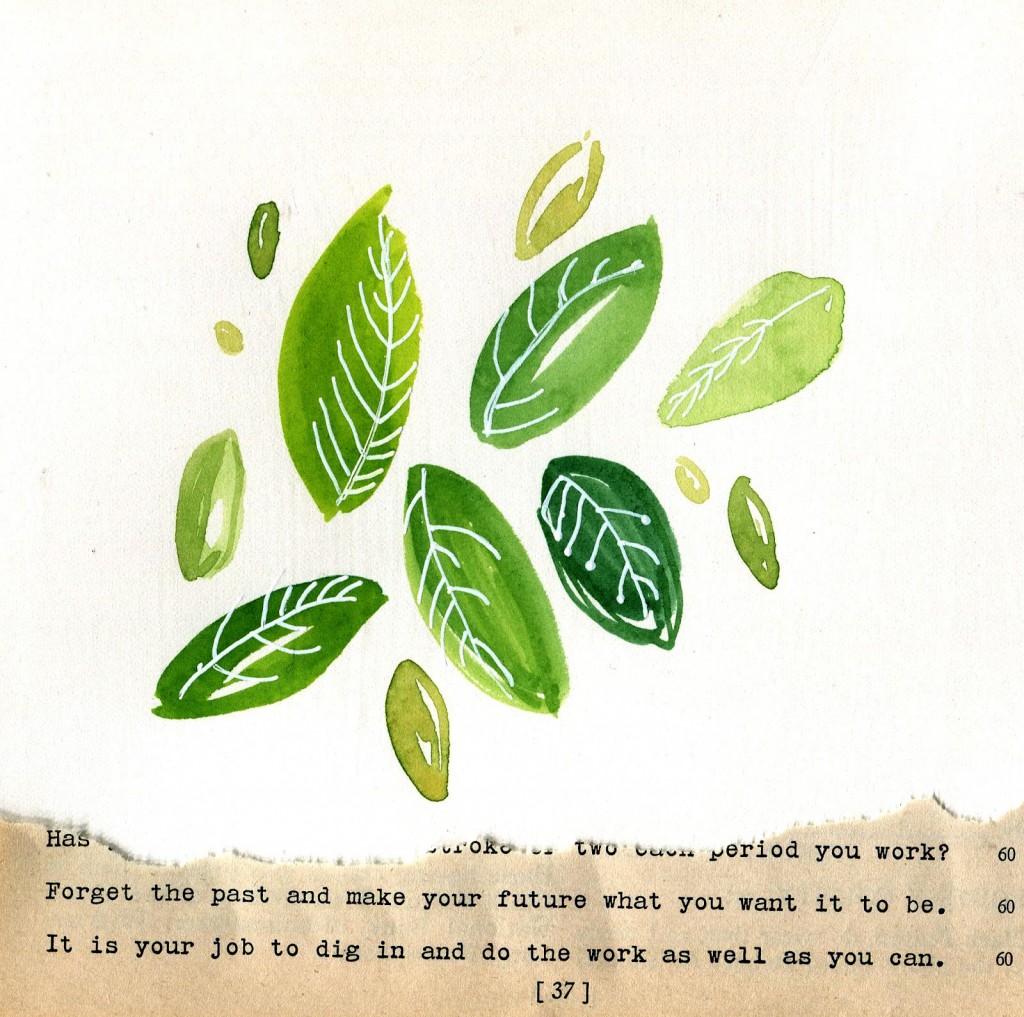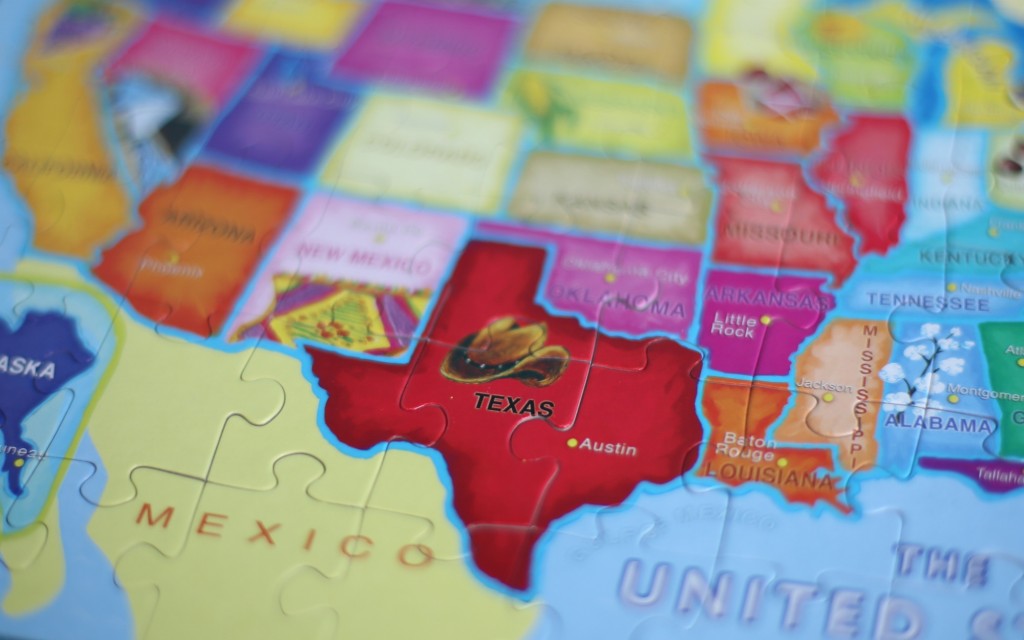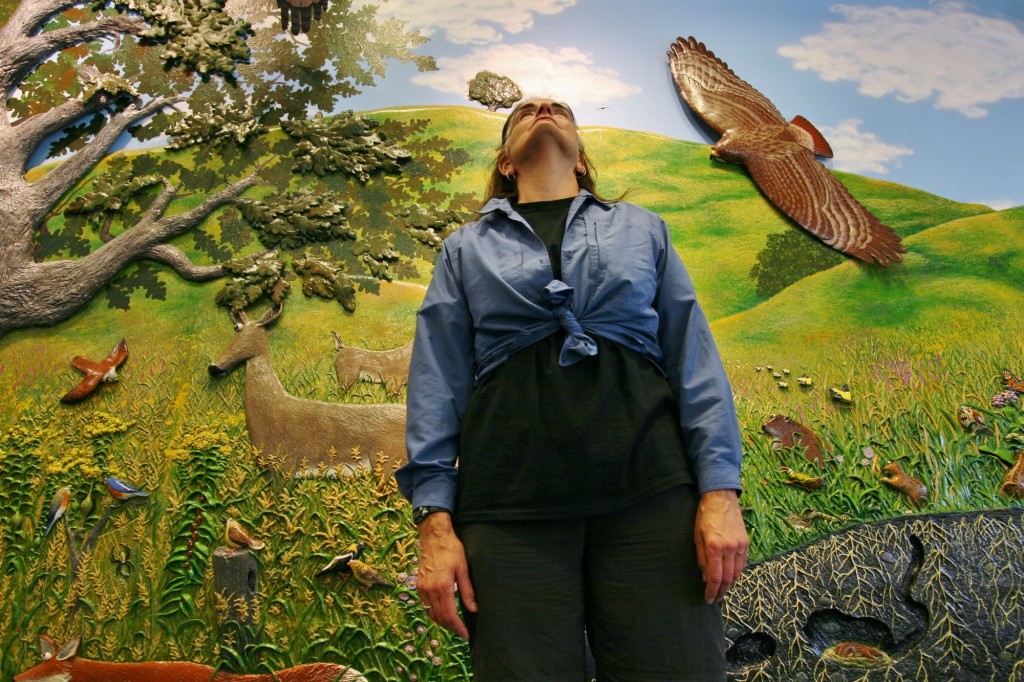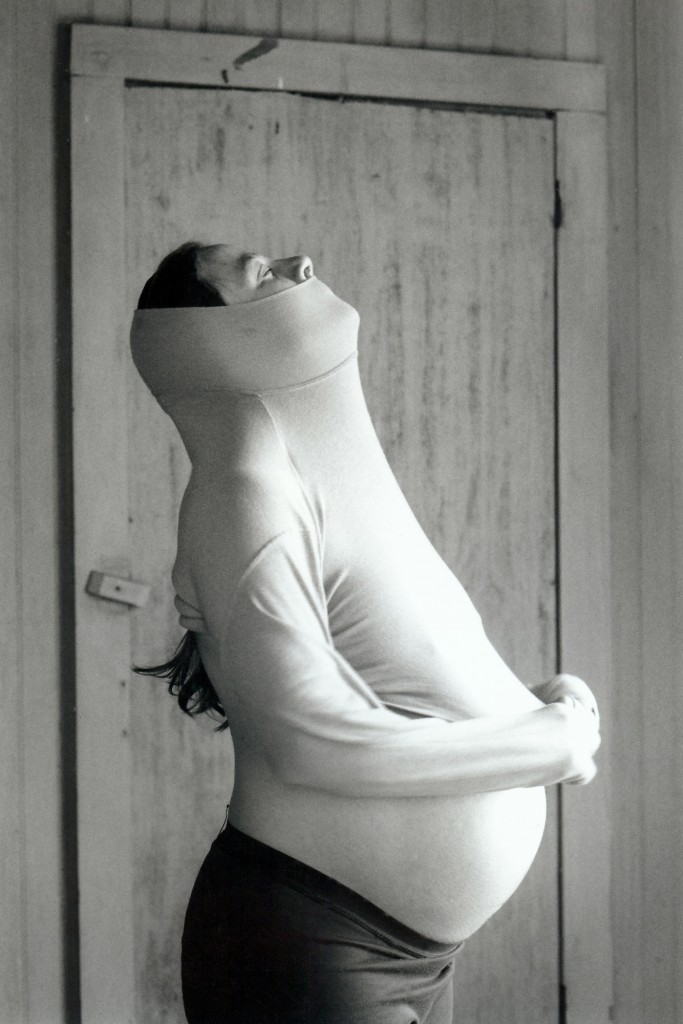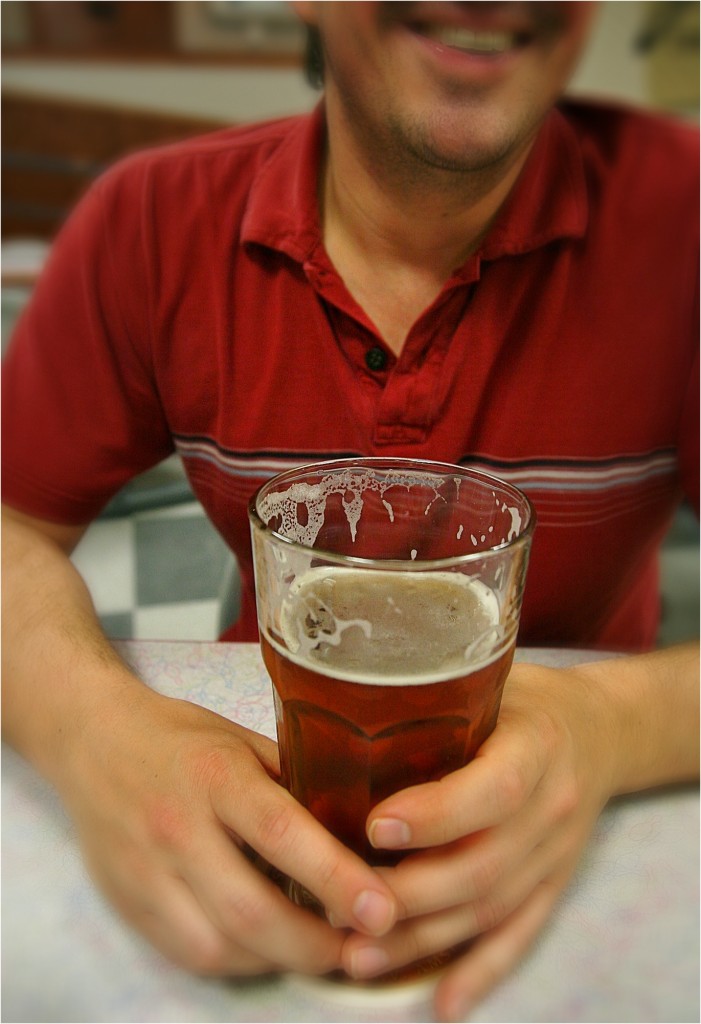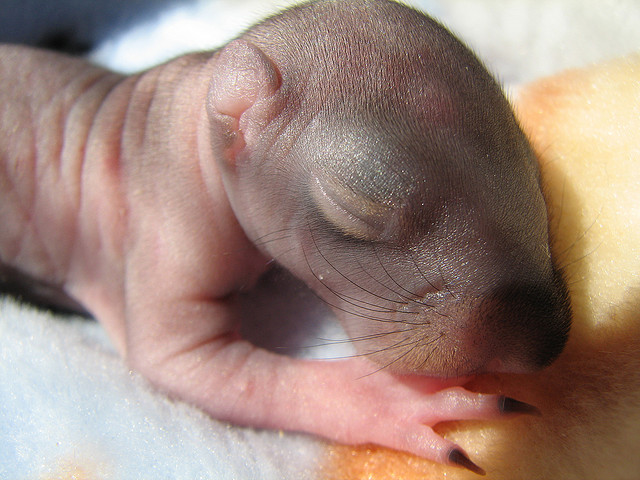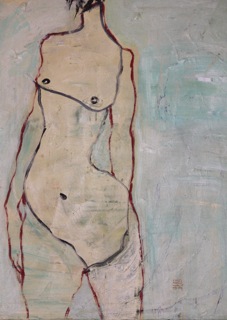
By Susannah Quern Pratt
She’s not thin, but she is not really Reubenesque either. Curvy—a nice hourglass in the lower half, nothing to brag about on top. Perhaps an exaggerated version of my own physique. She stands at an inviting angle, lingering unassumingly in front of a blue-green background. Her naked body outlined in a bright red line, her bare skin a light yellow. She is not an exhibitionist in our midst, but a companion.
I cannot help but look at her. I drink her in. And yet she is unknowable. Her face is hidden from view. She offers only her body. The peaceful, smooth, flowing, sanguine lines of her body. It is the body whole. The body beautiful. The body at peace.
•••
In 2009 the doctors found a large tumor in my husband’s brain. It’s not a benign tumor; it’s not a malignant tumor. They don’t really say such things to patients in so many words anymore. Which I appreciated. They assign numbers and suggest that those numbers have meanings that may, or may not, correlate to your ultimate life expectancy. Grade 2 this, Possible Grade 3 that…it’s all very coded, but it allows room for hope and healing, if you read the numbers in the right way.
The tumor made itself known though a violent thing called a grand mal seizure. Again, my medical terminology is outdated here—I think they are called by another name now, but there is something vast and ominous about the old French qualifier that I really love…grand mal. Big wrong.
This grand mal signaled the start of the John’s body odyssey—followed by six weeks of radiation and six months of chemotherapy. The entire process was a breaking down of the body—sidelining it while the proton beams and chemicals waged war against the offending tumor. John, the beams, and the chemicals did well; they emerged as victor and, for the time being, have vanquished that which would have taken him down.
Now, three years later, he is trying to rebuild in the body what was there before—musculature, stamina, health. He monitors his calves, searching for the return of the bulk and definition that he is accustomed to. He watches his hair—one of the first things to return—to check how the resettlement process is going. His body is a big country and lots of patience is required during this period of reconstruction.
While the battle was being waged inside John, my own body revolted. And while I didn’t end up in the hospital, I did make the rounds of an embarrassing number of doctors: gynecologists, gastroenterologists, cardiologists. At the end of many tests and well meaning tips from doctors who could find nothing seriously wrong with me, I surrendered to the notion that I simply had to acknowledge the weight of the whole experience. Those in the know, and by this I mean yogis, had predicted this state of affairs. Friends versed in yogic breathing and the importance of stretching watched my hunched shoulders ascend toward my ears. They noticed my arms constantly crossed, my neck tight and stiff. My chest concave and brow furrowed despite the presence of easy laughter and carpe diem resolve. My body was at odds with my spirit and overall orientation. In the head, I was all healing, all the time. In the body, I was slowly crumbling.
This feeling, the body at odds with the spirit or the self, was new to me, and in fact may be the best way that I know of to describe what was heretofore the abstract notion of aging. In this year of the body, my husband’s and mine were not the only ones to show a chink in the armor. Friends developed thyroid disorders, fistulas, glaucoma, breast cancer, and herniated discs. It’s a list that I mistakenly thought I would be making in retirement, but I am talking about those of us hanging out just on either side of forty. No one tells you this. In the age of extended life expectancy, of Botox and aging baby boomers, no one tells you that after a mere forty years, the body will make some of its wear and tear known. No one tells you that living with a chronic condition could mean forty more years of living with a pain or limitation. And no one could ever prepare you for the fact that chronic takes on a relative appeal when compared to the alternative of terminal.
And each of these maladies is discordant with the way my friends and I perceive our lives. In our minds, we are all just getting started. We have small children and newly refinished kitchens. We’re forming opinions about local elementary schools and starting college savings plans. Life looks long from where we sit.
•••
The nude came to us by way of a clandestine meeting between the artist and my husband in the preschool parking lot. We first spotted her in a dark restaurant over a good bottle of wine with friends. John and I sat facing her all night, and as we were getting up after dinner, I told him that I loved the painting. Somewhat surprisingly (there’s no accounting for artistic taste), he completely agreed. There is a simple symmetry to her that is appealing, a certain openness. She’s easy to be with.
After tracking down the artist’s name from the restaurant owner, John had to sneak around to secure the painting without my knowledge. This included a hand-off from the female artist while I was away at work, a meeting that turned the heads of more than a few curious preschool moms but resulted in complete surprise for me. I opened the brown paper wrapping and beheld the painting with great joy—a feeling of reunion.
Finding the right spot for her took some time. She is nude, after all. We flirted with a spot for her in the dining room, considered having her welcome people to the kitchen. For several weeks she ended up propped against our bedroom wall, and I got used to having her there with us. Ultimately she ended up on the bedroom wall outside my closet door, a situation that forces me daily to reckon my own form with hers. So far this has not resulted in despair, but rather further affection.
•••
I have been fortunate in my life never to have been in an extended argument with my body. In college, when girls were alternatively eating whole wheat bagels with mustard (no fat!) and then vomiting to shed excess weight, I happily ballooned up the proverbial fifteen pounds. After college, lacking access to free beer, the fifteen pounds just sort of fell away, and so did an extra five that had been with me since high school. Each of my three pregnancies have been kind—far more miraculous than torturous. And again my normal shape has more or less returned, slightly saggier but basically the same.
Given our long history of peaceful, reliable coexistence, this most recent series of tumors and chest pain and cancers shook up my world order. People speak about disease or illness as being “betrayed by their bodies” but that seems too melodramatic to me, and somewhat inaccurate. It’s not that our bodies have become foreign in their failings, leaving us to question whether we ever really knew them to begin with. Rather, they seem to simply be signaling that things cannot continue as they have. In this way, our bodies are more like unwelcome harbingers of what is to come.
And perhaps this was the biggest question for me arising from The Year of the Body: Is the body the victim or the aggressor? Are these cancers and tumors of us, or alien attackers to be fought off with force? In some cases—like John’s—the tiny clustering of aggressive cells seemed other, like it had no place in him. And yet in other similar cases it’s the body itself that seems to be the enemy. Like the bodies of friends testing positive for the BRCA genes, the genetic predictor of an almost certain eventual occurrence of breast cancer. The women I know who have heard this unwelcome news from their doctors have immediately flown the white flag of surrender and made their way to the nearest surgeon for radical mastectomies and hysterectomies. The tumors don’t yet exist, but their bodies are fundamentally coded for disease. In this case, the preventative mutilations feel strangely appropriate. Like the body is being punished. Pruned back so it might continue to thrive.
•••
Since the painting hangs in an area highly trafficked by our three boys, my husband is waiting for the day when our oldest son, now eight, is first embarrassed by it—and then fascinated by the fully exposed female body. I think this day may be a long way off. Three little boys still come in to talk to me while I am showering, my own body in full view behind a glass shower door, asking what time their grandma is coming over or whether they can watch another show before homework. If they have questions about things corporeal, they are asked in a matter of fact tone. No stammering awkwardness, just straight up curiosity. “Mom, do you pee out of your butt?”
For years I have appreciated that the boys are still in a stage of body innocence—willingly changing out of their wet swimsuits and into dry clothes right in front of any neighbors or friends hanging out in our backyard. They have no shame about their bodies, no desire to judge shapes or figures different than theirs.
But what I have just described is the kind of innocence that is freedom from body image. Lately what I have been appreciating is their freedom from body dependence. Their bodies run, perform, produce on command, without thought or concern. They slam into each other on the bed during marathon wrestling matches without fear of broken bones or other injury. Having pizza for three consecutive meals doesn’t phase them because they have not yet begun to do the exhausting math that haunts the rest of us—the work of eliminating partially hydrogenated oils, or adding Vitamin D and antioxidants to concoct an elixir that will take off a pound or two here or add a year or two there. John and I have given up meat in the wake of his illness; they continue to relish bacon with their breakfasts. They sleep when they are tired, and they sleep deeply and soundly in direct correlation to the amount of activity in a given afternoon. I love watching them sleep—three little bodies at rest—deep breaths, slow shifts, quiet sighs.
•••
A few months ago, John was riding his bike to work for the first time since the end of chemo. He came down dressed in his gear—Lycra bike shorts and shirt, helmet in hand. Calves once again respectable. It is a full ten-mile ride along the lakefront and into some intense city traffic before he arrives at his office. My former strategy for dealing with any anxiety this might cause was to pretty much ignore what he was doing until I got a text signaling his safe arrival.
I am newly cautious, however. “Are you going to ride all the way in?” I asked. That was his plan—just to ride in. He was going to leave his bike at the office and take the train home. This sounded reasonable enough to me so I turned a deaf ear to the whispery voices saying things like “seizure” and “exhaustion.” He departed, a triumphant blur speeding out of the driveway, serenaded by the cheers of three little boys thrilled to see their father in the saddle again.
Later that day, I got a phone call. He was going to ride home. That would bring today’s total to twenty miles, I reminded him. I carried a load of laundry upstairs to our bedroom and began to fold. A chore that, especially in times of stress, feels like a piece of stage business to me. I folded and called out answers to the boys’ questions about dinner. But the whole scene was suspended and surreal; my mind was on a parallel track, watching John navigate the myriad bikers, dog-walkers, and cabs in his path. I was following his body, rooting for it, praying for it. His body that I adore. His body that I fear.
Warm laundry in hand, I looked over at the nude, and in that moment it became clear to me what I like about the painting—what pulls my eyes to it again and again. There, on the canvas, is successful surrender to the body, unabashed adoration of its beautiful, fallible imperfection. No face, no separate self—rather, a reconciling. In the painting, the body is all, and the body is enough.
•••
SUSANNAH QUERN PRATT lives with her healthy husband and three growing boys in Evanston, Illinois.

 Follow
Follow
